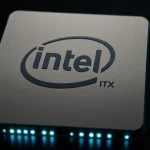OpenAI Acquires Company Behind New Apple Mac App Sky

In a bold move that highlights its ambition to integrate artificial intelligence deeply into everyday tasks, OpenAI has acquired Software Applications Incorporated, the creators of Sky—a natural language interface designed specifically for Mac users. This acquisition represents a significant step forward in how users can interact with their devices, enhancing productivity through advanced AI capabilities.
OpenAI's Vision for Sky: Integrating macOS Expertise into ChatGPT
OpenAI has shared its plans for the newly acquired Sky technology, emphasizing the potential benefits for users. In a recent press release, they stated, "We will bring Sky’s deep macOS integration and product craft into ChatGPT, and all members of the team will join OpenAI."
Sky is not just another application; it's designed to transform how users interact with their Macs by leveraging AI models to understand and respond to natural language commands. This is how it works:
- Contextual Understanding: Sky can analyze what's on the screen and take appropriate actions based on user commands.
- Cross-Application Functionality: Users can execute tasks across multiple macOS applications, such as summarizing web pages and sharing that information via the Messages app.
- Custom Automation: The app allows users to create personalized automation scripts and shortcuts to enhance app functionality.
- Intuitive Interface: Sky operates in a small, floating window that remains visible above other applications, ensuring easy access at all times.
OpenAI elaborated on the significance of the Sky acquisition, stating: "Sky is a powerful natural language interface for the Mac. With Sky, AI works alongside you, whether you’re writing, planning, coding, or managing your day." This reflects OpenAI's commitment to seamlessly incorporating AI into daily workflows, making technology more user-friendly.
The Technical Edge of Sky: Beyond Traditional AI Interfaces
Sky was developed by the same team that created Workflow, an automation tool that Apple acquired in 2017 and rebranded as Shortcuts. Workflow enabled users to combine various app functionalities for complex processes, a feature that Sky enhances with AI capabilities. This evolution signifies a growing trend in the tech industry, where automation and AI converge to streamline user experiences.
OpenAI's acquisition of Software Applications Incorporated is not merely a strategic business move; it is a response to the increasing demand for intelligent assistants that can operate effectively within the macOS ecosystem. Sky offers capabilities that surpass those of existing Apple products, such as Siri, which has been criticized for its limited contextual understanding and functionality.
What Sets Sky Apart from Apple's Current Offerings?
While Apple has invested heavily in AI, its current offerings, including Siri, have faced challenges. Users have expressed dissatisfaction with Siri's performance, particularly regarding its ability to understand context and execute complex commands. In contrast, Sky promises a more robust solution through:
- Greater Contextual Awareness: Sky is designed to interpret user intent based on visible content, allowing for more accurate responses.
- Advanced Automation Capabilities: Users can create intricate workflows that incorporate multiple apps, enhancing productivity.
- Continuous Learning: The AI behind Sky can learn and adapt to user preferences over time, improving its service.
This capability becomes even more critical as users increasingly rely on their devices to manage daily tasks efficiently. As noted by Nick Turley, OpenAI's VP and Head of ChatGPT, "Sky’s deep integration with the Mac accelerates our vision of bringing AI directly into the tools people use every day."
Challenges Faced by Apple in the AI Space
As OpenAI makes significant strides with Sky, Apple has encountered its own hurdles. Recently, concerns were raised regarding the performance of the new version of Siri, which is set to launch with iOS 26.4 in the spring of 2026. Internal discussions among Apple engineers reveal worries about Siri's ability to compete with emerging AI technologies.
Additionally, Apple's recent leadership changes, including the departure of Ke Yang, head of the Answers, Knowledge, and Information team, highlight the corporate struggles the company faces in maintaining a competitive edge in AI.
The Future of AI Integration in macOS
OpenAI's acquisition of the team behind Sky may well signal a new era for AI integration within macOS. The potential benefits extend beyond individual users and could revolutionize how businesses operate. With AI tools like Sky, employees can:
- Boost Productivity: By automating repetitive tasks, users can focus on higher-level functions.
- Enhance Collaboration: Teams can share insights and summaries quickly via integrated applications.
- Personalize Workflows: Custom commands can be tailored to specific business needs, improving overall efficiency.
As OpenAI continues to innovate, the implications of this acquisition could redefine interactions within the macOS ecosystem. The addition of AI-driven interfaces like Sky may lead to increased demand for similar technologies, pushing competitors to enhance their offerings.
For those interested in a visual overview of this acquisition and its implications, check out this insightful YouTube video:
As the landscape of artificial intelligence evolves, users can expect a future where AI is not merely an assistant but a fundamental component of their daily computing experience. OpenAI's efforts to integrate Sky into ChatGPT could pave the way for smarter, more efficient technology that enhances both personal and professional productivity.




Leave a Reply